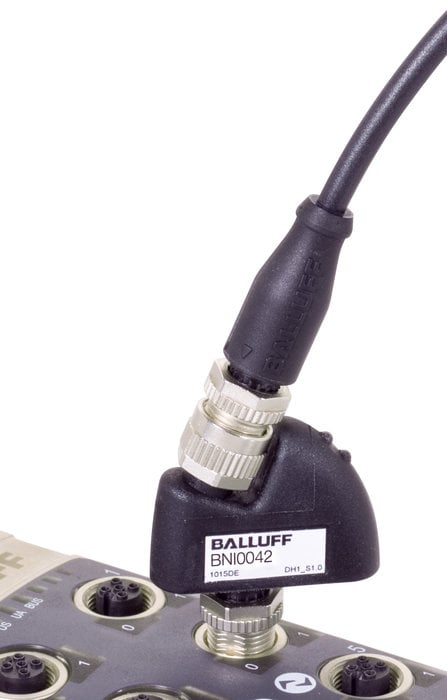www.industryemea.com
01
'10
Written on Modified on
IO-Link Analog Plug: convert analog signals into IO-Link signals
Until now it has been costly to connect and incorporate analog input/output signals, even though they generally only make up less than 10% of the signals used in a system. The reasons include the use of shielded cable on the installation side and expensive multi-channel input modules on the controller side. The new IO-Link Analog Plugs from Balluff with their high resolution of 14 bits provide the solution. They are the ideal choice for systems with limited instances of analog signals.

With an IP 67 enclosure rating, the plugs feature a space-saving housing, are connected directly to the sensor and convert the analog signals into IO-Link signals before transmission. In this way they provide significant savings potential.
In place of expensive shielded cables, simple unshielded, 3-conductor cable is used. The signal neutrality of the IO-Link ports on the IO-Link Master module in combination with the IO-Link plugs ensures maximum signal variance. Mixing of different input, output, current and voltage signals can be mixed on one module.
Versions are available with a current input of 4-20 mA, voltage from 0-10 V or PT 100, a current output of 4-20 mA and a voltage output of 0-10 V.
In place of expensive shielded cables, simple unshielded, 3-conductor cable is used. The signal neutrality of the IO-Link ports on the IO-Link Master module in combination with the IO-Link plugs ensures maximum signal variance. Mixing of different input, output, current and voltage signals can be mixed on one module.
Versions are available with a current input of 4-20 mA, voltage from 0-10 V or PT 100, a current output of 4-20 mA and a voltage output of 0-10 V.

